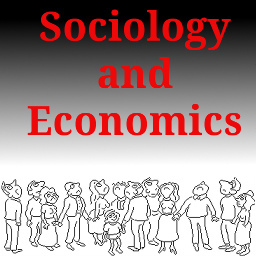 In a free market, you’re not supposed to have increasing profits.
In a free market, you’re not supposed to have increasing profits.
No, seriously. Stop laughing.
We’ve gotten away from this concept, but it’s a really vital, key element to understanding what’s so screwed up in our system these days. And it’s easiest to explain using an example (which is why this is also under “publishing”).
Digital books. Converting a text to a digital book takes some skill. When you’re one of the first few people to know that skill, you are very much in demand. Because there’s so much demand for your skill, you can charge quite a bit. It’s a time of huge profits for you, and that’s as it should be. You were one of the innovators who started the thing. That’s illustrated by the chart below. It’s a (simplified) supply/demand curve. (There’s an animated one here that might make more sense.)
Take a look. The reason it’s a two-sided curve is pretty simple. Some people are willing to pay more. Some suppliers are willing to sell for less. Where the two meet is “equilibrium” – or where the markets are supposed to naturally hover around.
As more people learn how to make digital books, there is more competition. Prices go down, because there’s someone willing to do the same work for less. As consumers learn that there are cheaper alternatives, they become less willing to buy expensive versions. The curve shifts, but is still at equilibrium.
If there gets to be too many people supplying the service, then the price drops so low that nobody’s willing to do the work (for hire) at the prices people are willing to offer. Either people learn to do it themselves, or fewer people offer the service until the price goes up again.
Most businesses are supposed to break even. They’re supposed to be at this “equilibrium” stage, but we forget that.
There’s ways around it. Perhaps one person figures out how to automate the process and do it faster. Then it’s cheaper to do the work, so he can offer it for less and still make money… at least for a little while, until other people figure out how to automate the process as well. Or another person supplies excellent customer service, so they can charge a premium. Or another pays so much attention to the user interface that it’s a revolutionary thing to just hold the product.
That’s differentiation. Brands try to do this somewhat shamelessly. Small differences are touted as reasons why you should buy a Kindle instead of a nook, or a Whopper instead of a Big Mac.
And then there’s artificial scarcity. When, for example, you think the only way to get into the iBookstore is through a few “limited partners”, so you’ll gladly pay them a totally unnecessary “yearly fee”. And that’s such a bloody scam that it’s not funny.
Remember Yog’s Law: Money flows toward the author. There’s nothing inherently wrong with middlemen, but there is something wrong when authors are having to pay for someone else to make money from them.

